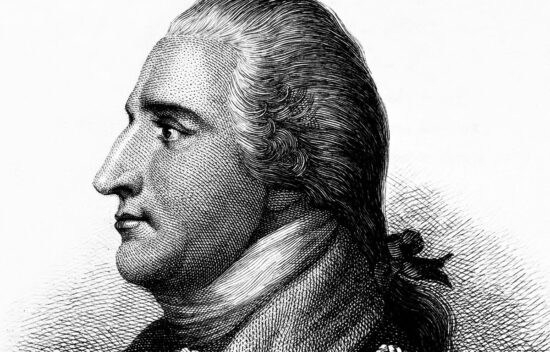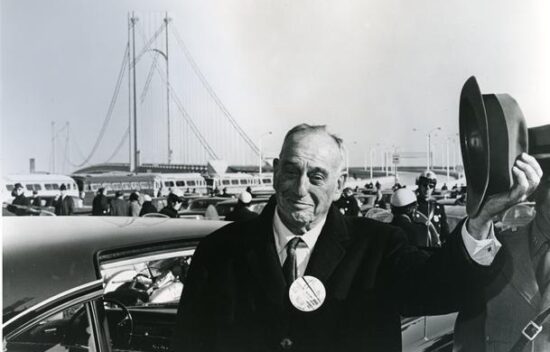
Heroes and Villains
27 LessonsResource Overview:
In a nation founded on constitutional principles such as individual liberty and consent of the governed, civic virtue must be central to all civic education. To teach civic virtue is to help preserve our republic by developing the character of students. This civic resource avoids shallow topics, inviting teachers and students to dive straightforwardly into robust, history-based topics. Through rich narratives, critical questions, meaningful discussions, and personal application, teachers and students will examine the civic virtue assumptions of our nation’s Founders and their relevance today.
Educator Facilitation Guide
Special Features:
- 24 narratives that convey stories of individuals who faced decisive moments in which to practice virtue or vice – including Benedict Arnold, Clara Barton, Frederick Douglass, and more.
- Journal exercises that encourage deep reflection of individual students’ hearts and minds.
- “Virtue in Action” supplements provide ideas and activities for students to practice habits of civic virtue in their schools and communities.
- Cross-curricular connections make it easy for faculty and staff to work together toward the same goals within the context of their own classrooms.
- Engaging videos that provide additional context in a different medium meeting the needs of diverse classrooms.
Teachers Say:
“These lessons serve a vital purpose and prompts very interesting conversations that connect past events to current events and to students themselves. Listening to the students describe their perspectives about these virtues was eye opening and a great way to get to know the students in depth.” Wendy Wuenker, Florida Educator
“All schools, at any level, can be enriched by character education.” Kathy Hagee, California Educator
“The lessons were valuable because they made the students reevaluate their own ethics. Although many of our students are “good” people, these lessons help reinforce the virtues and standards that we would like our students to embrace and display as citizens. – Pilot Test Educator
Create playlists, save resources to your library, and access answer keys – Sign up for an educator account!
27 Lessons
 Lesson
LessonDefining Civic Virtues
Through this introduction lesson, students will understand why it is important for engaged citizens to practice civic virtues to build and support a healthy civil society.
 Lesson
LessonBenjamin Franklin and Civic Virtue
How did Benjamin Franklin’s develop and practice virtue? Help students identify ways they can make being virtuous a habit.
 Lesson
LessonAaron Burr and Hubris
What is the difference between self-serving ambition and noble ambition? Explore the character and career of Aaron Burr.
 Lesson
LessonAlice Paul and Responsibility
How did Alice Paul respond in the face adversity? Explore how her choice to act responsibly.
 Lesson
LessonAugust Landmesser and Courage
How did August Landmesser display the virtue of courage? Explores the significance of courage in a society built on democratic principles.
 Lesson
LessonBenedict Arnold and Dishonor
What are the dangers of deception and lack of integrity in a civil society? Explore the vice of dishonor by examining the story of Benedict Arnold.
 Lesson
LessonChe Guevara and Injustice
How did the Communist system Che Guevara fought for and helped install lead to great injustice in Cuba and contribute to global communist injustice?
 Lesson
LessonClara Barton and Responsibility
How did Clara Barton dedicate herself to the responsibility for caring for others throughout her life? How can students act responsibly in their own lives?
 Lesson
LessonDouglas MacArthur and Hubris
What are the benefits of humility in leadership? Learn about the vice of hubris through the story of Douglas MacArthur.
 Lesson
LessonDwight Eisenhower and Responsibility
What military decisions did Dwight Eisenhower make on D-Day in World War II and how did he take responsibility for his grave decisions of launching the Normandy invasion?
 Lesson
LessonElizabeth Eckford and Courage
What is the virtue of courage and why it is important in a society that values individual liberty? Trace the experience of Elizabeth Eckford and the Little Rock Nine to explore these questions.
 Lesson
LessonFrederick Douglass and Responsibility
Dive-deep into the life of Frederick Douglass and explore how he demonstrate the virtue of responsibility.
 Lesson
LessonGeorge Washington and Prudence
How did George Washington display the virtue of prudence through his life? Explore the influence of his prudence on the early republic and discuss what examples of prudence can be observed today.
 Lesson
LessonHuey Long and Immoderation (Extremism)
How should leaders behave and make decisions in a democratic society? Explore these questions through narratives and activities that focus on Huey Long.
 Lesson
LessonIrma Grese and Self-Deception
How did self-deception play a role in the World War II Holocaust? How can ordinary men and women be indoctrinated to commit inhuman evil, and how can we guard against ideologies that lead to these behaviors?
 Lesson
LessonJames Armistead and Courage
How and when should an individual act courageously? Explore the story of James Armistead Lafayette.
 Lesson
LessonJohn Brown and Self-Deception
What is the vice of self-deception? Examine whether John Brown deceived himself with self-righteousness by thinking that he could end slavery in the antebellum United States by freeing and arming slaves to launch a racial war in the South.
 Lesson
LessonJoseph McCarthy and Irresponsibility
How can irresponsibility create an unhealthy civic culture of fear and distrust?
 Lesson
LessonJourdon Anderson and Justice
How did Jourdon Anderson received justice for himself and for his family from his former owner? Analyze the virtue of justice by evaluating a letter from Anderson to his former slave owner. How can students seek justice on behalf of themselves and others?
 Lesson
LessonMaximilien Robespierre and Injustice
What role did Robespierre play in the mass murder of the Terror during the French Revolution? Students will focus on the vice of injustice.
 Lesson
LessonRobert Moses and Immoderation (Extremism)
What was Robert Moses' approach to urban development in New York? Help students reflect on immoderation in political power by participating in a game that simulates decision-making.
 Lesson
LessonRoger Taney and Injustice
How did Supreme Court Chief Justice Roger Taney's decision in the Dred Scott (1857)case institute great injustice against African Americans?
 Lesson
LessonThe Schechter Brothers and Integrity
What struggles did the Schechter Brothers face and how did they refuse to give up their values or compromise their integrity? Students will use this example to think about ways they can be purposeful in their own lives.
 Lesson
LessonThomas Jefferson and Prudence
What is the virtue of prudence? Use art analysis, secondary source analysis, and guided discussion to help students explore this important virtue.
 Lesson
LessonTiananmen Square and Courage
How did the anonymous individual who refused to yield to a tank during the crackdown on protesters at Tiananmen Square display the virtue of courage?
 Lesson
LessonWilliam “Boss” Tweed and Immoderation
Explore the vice of immoderation in civil society in this lesson on civic virtue. Examine “Boss” Tweed and his corrupt New York political machine, and how the vice affected politics and civil society.
 Lesson
LessonWilliam Stoughton and Injustice
Explore what injustice looks like in leadership and among ordinary citizens.




